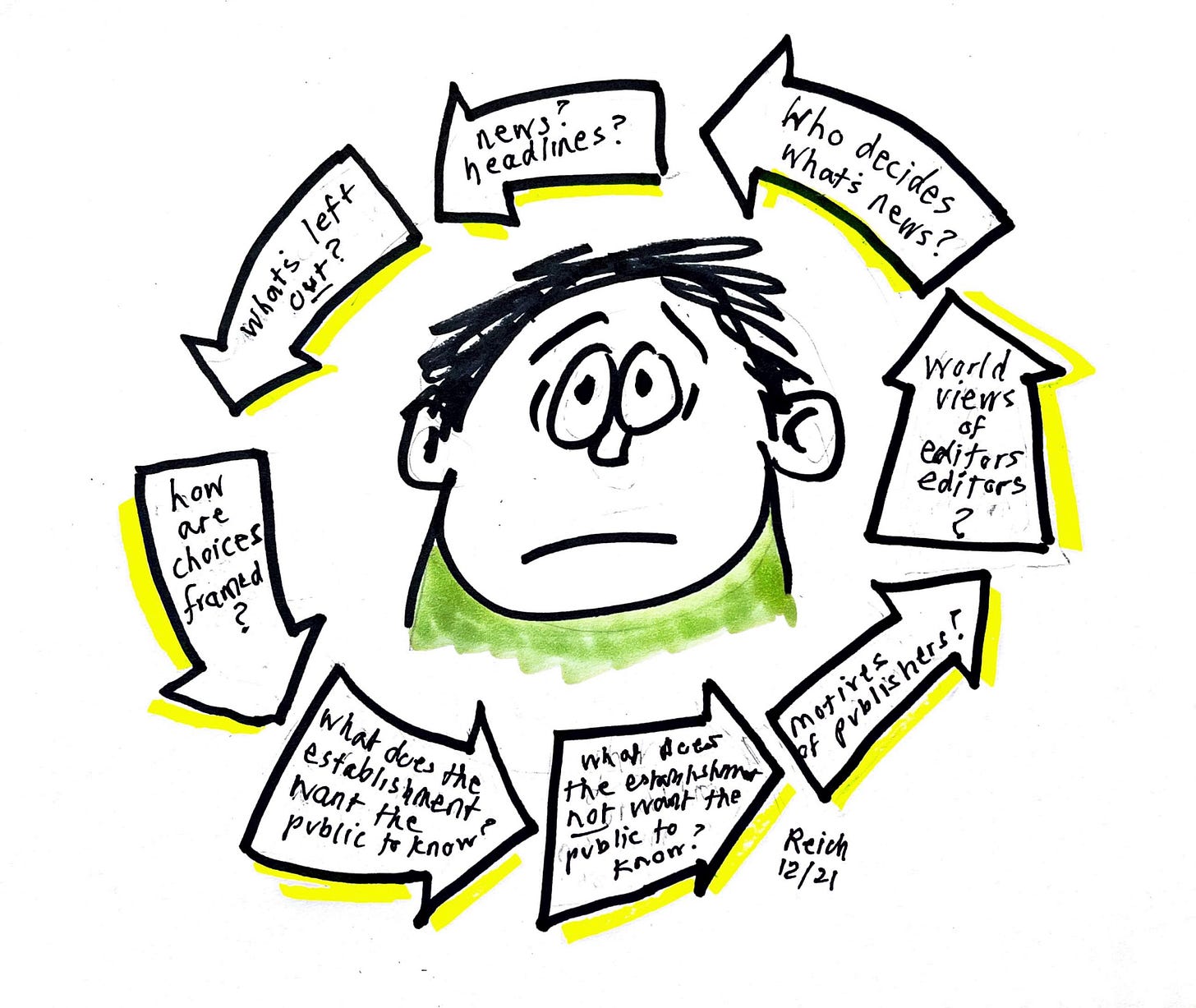I’m often asked how I keep up with the news. Obviously, I avoid the unhinged rightwing outlets pushing misinformation, disinformation, and poisonous lies.
But I’ve also grown a bit wary of the mainstream media –- the New York Times, Washington Post, CNN, and other dominant outlets — not because they peddle “fake news” (their reporting is usually first-rate) but because of three more subtle biases.
First, they often favor the status quo. Mainstream journalists wanting to appear serious about public policy rip into progressives for the costs of their proposals, but never ask self-styled “moderates” how they plan to cope with the costs of doing nothing or doing too little about the same problems.
A Green New Deal might be expensive but doing nothing about the climate crisis will almost certainly cost far more. Medicare for All will cost a lot, but the price of doing nothing about America’s cruel and dysfunctional healthcare system will soon be in the stratosphere.
Second, the mainstream media often fail to report critical public choices. Any day now, the Senate will approve giving $768 billion to the military for this fiscal year. That’s billions more than the Pentagon sought. It’s about four times the size of Biden’s Build Back Better bill, which would come to around $175 billion a year. But where’s the reporting on the effects of this spending on the national debt, or on inflation, or whether it’s even necessary?
Third, the mainstream media indulge in false equivalences — claiming that certain Republican and Democratic lawmakers are emerging as “troublemakers” within their parties or that extremists “on both sides” are “radicalizing each other”.
These reports equate Republican lawmakers who are actively promoting Donald Trump’s big lie that the 2020 election was stolen with Democratic lawmakers who are fighting to protect voting rights. Well, I’m sorry. These are not equivalent. Trump’s big lie is a direct challenge to American democracy.
In the looming fight over whether to preserve the Senate filibuster, the mainstream media gives equal weight to both sides’ claims that the other side’s position is radical. But ask yourself which is more radical – abolishing the filibuster to save American democracy or destroying American democracy to save the filibuster?
You see, the old labels “left” versus “right” are fast becoming outdated. Today, it’s democracy versus oligarchy. Equating them is misleading and dangerous.
Why doesn’t the mainstream media see this? Not just because of its dependence on corporate money. I think the source of the bias is more subtle.
Top editors and reporters, usually based in New York and Washington, want to be accepted into the circles of the powerful – not only for sources of news but also because such acceptance is psychologically seductive. It confers a degree of success. But once accepted, they can’t help but begin to see the world through the eyes of the powerful.
I follow the mainstream media, but I don’t limit myself to it. And I don’t rely on it to educate the public about bold, progressive ideas that would make America and the world fairer and stronger.
I read the Guardian, the American Prospect (which, full disclosure, I helped found thirty years ago), Mother Jones, and The Atlantic. I follow several blogs (Daily Kos and Talking Points Memo, for example). I listen to the always thoughtful Democracy Now. And I subscribe to a few newsletters (I hope you like this one and spread word of it).
But even with news sources I trust, I still ask myself: how are choices being framed? What’s being left out? What big underlying issues are being assumed away or obscured?
When our democracy is under assault from so many directions, I think we need to educate and re-educate ourselves (and our children) about how to learn what’s really going on — how to absorb the news critically. Isn’t this a minimal responsibility of democratic citizenship?
What do you think?











